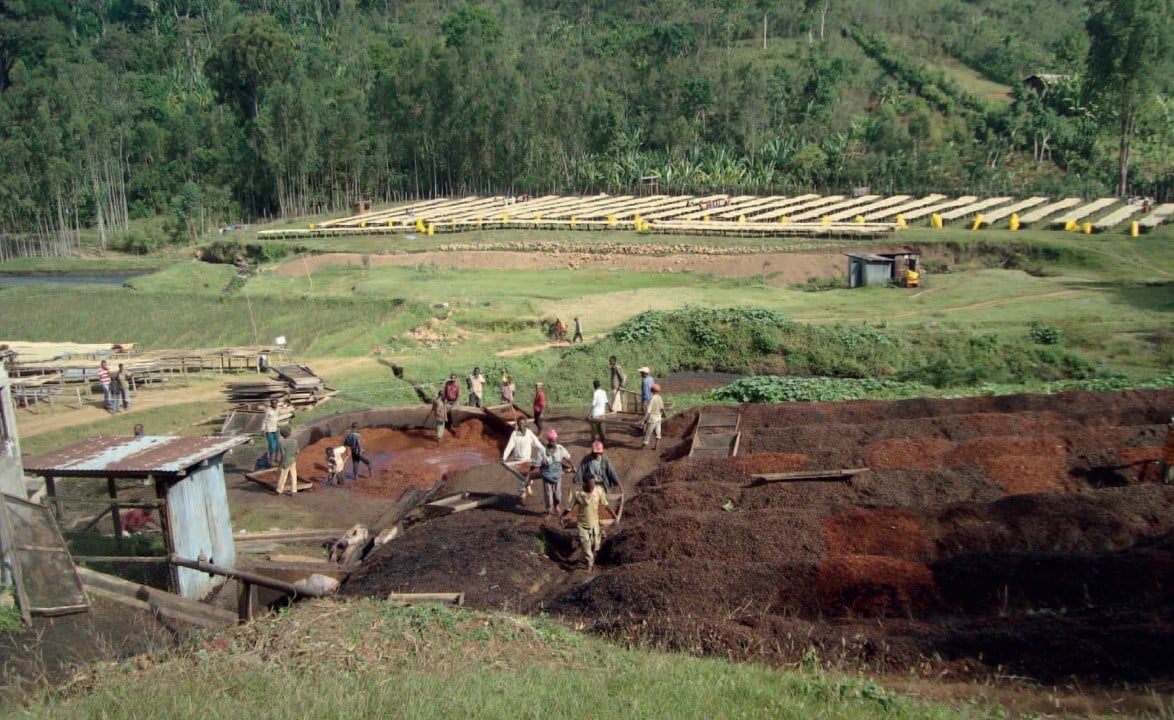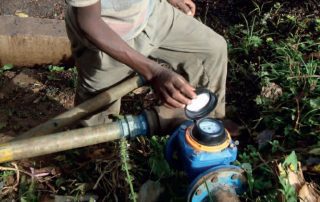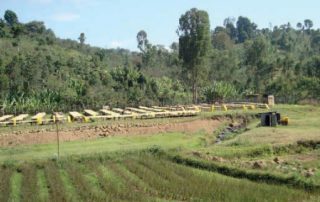
PILOT PROJECT IN BOKASSO COOPERATIVE
IMPROVE WASTE WATER TREATMENT IN ETHIOPIA
IMPROVE WASTE WATER TREATMENT IN ETHIOPIA
PURPOSE
Cooperatives of the Sidamo area, Bokasso & Hunkute cooperatives face difficulties managing waste water resulting from coffee processing. The waste water streams generated from the coffee processing go directly back to the river: During the coffee harvesting season, waste water is collected in lagoons to be evaporated. Unfortunately, these lagoons cannot retain the produced volume of waste water. The waste water, full of organic matter, flows then into the nearby river and pollutes it. Pollution is also caused by penetration through the ground water table, because the lagoons are too close nearby the river. This leads to contamination of the water used by surrounding communities located down the river.
- A full re-designing of the waste water treatment systems in the washing station is done with 3 goals:
1) Reducing the water used during processing thanks to a re-circulation system; via installation of water meters,
the knowledge on water consumption will increase;
2) Separating pulp and waste water for composting purpose;
3) Effectively retaining waste water at the end of the processing by use of vetiver wetland = deep-rooting water purifying plants, etc. - Because of the high processed volume at Bokasso’s main washing station, it was decided to revamp its waste water treatment system. Pollution of the nearby river caused by coffee processing will reduce.
- After successful implementation of the waste water treatment in Bokasso’s main washing station, the project can be replicated. Of course, each implementation should take into account the specific topography and facilities of each washing station.
This project was possible thanks to the support of Technoserve, Sidama Union, Bokasso Farmers Service Cooperative, EFICO/KURU and the EFICO Foundation and ran from May 2012 up to May 2014.

